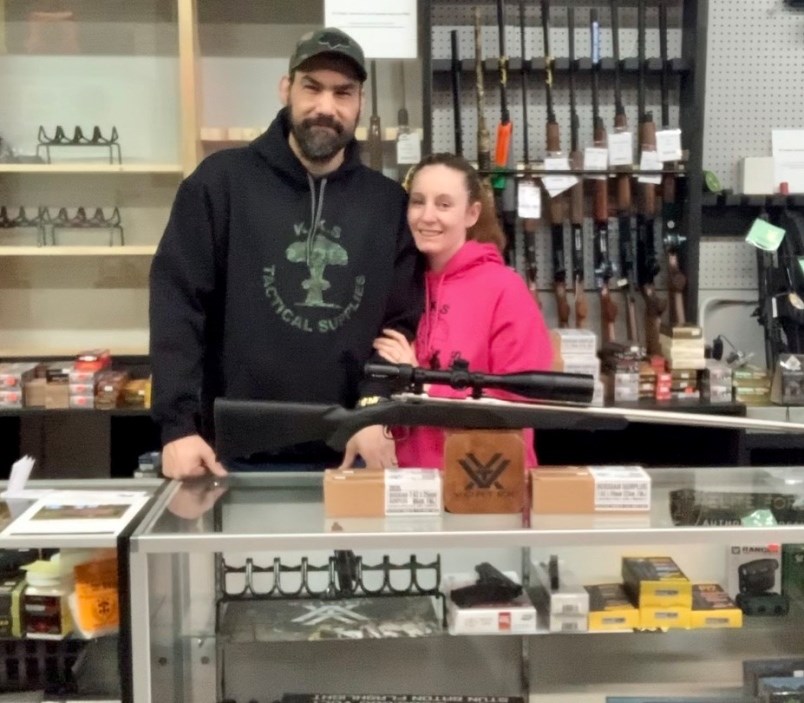A Prince George gun shop owner is seeking a judicial review of the federal government's most-recent round of firearm bans.
Cassandra Parker, who operates K.K.S. Tactical Supplies along with her husband, Dave, says an order in council federal cabinet issued May 1, left her stranded with about $75,000 worth of inventory that could not be sold.
About 1,500 models were reclassified as prohibited, in the process banning about 100,000 guns in Canada that were previously legal. The order in council allowed the Trudeau government to implement the ban immediately, and without the need for legislation in Parliament.
With the help of the National Firearms Association, of which local firearms advocate Sheldon Clare is president, Parker obtained lawyer Solomon Friedman to argue her case. The Ottawa-based lawyer is a noted expert on firearms law.
Three weeks after Prime Minister Justin Trudeau announced the ban on "military-style" assault rifles an application was filed in the Federal Court of Canada on Parker's behalf. She became the first of six parties to have filed legal actions against the ban.
In the application, Friedman argues that while the government is permitted to ban firearms of certain classifications, an exception exists under the criminal code for guns deemed "reasonable for use in Canada for hunting or sporting purposes."
The order is "subject to review" by the court, Friedman argues in the application, and it "cannot stand" if the government's decision is found to be "unreasonable, arbitrary or irrational."
The process of advancing the application has been slow going. In an August 20 webcast on the NFA's Facebook page, Friedman said he hoped to have received the "first wave" of disclosure from the federal government by mid-September.
Critics say the order in council was arbitrary and based on models rather than specifications.
In an interview, Parker said that since the order in council was made, a further 10,000 firearms have been banned based on being variants of what was included in the order.
"A lot of firearms that were included in that list are traditional hunting rifles, not actually these military-style assault weapons," Parker said. "They've coined this new phrase that doesn't actually classify anything."
The Canadian Taxpayers Federation, meanwhile, is seeking intervener status. In a column, CTF director Kris Sims cast doubt on the federal government's buyback program that was promised as part of the announcement.
"The Liberal Party earmarked $250 million to 'tackle gun crime' in its most recent election platform. If history is any guide, that is a low-ball guesstimate for a buyback. The 1993 Long Gun Registry cost Canadians taxpayers $2 billion. The feds first figured that program would cost taxpayers $2 million," Sims said.
"The government hasn't presented evidence showing this policy will make Canadians safer. It certainly hasn't showed it'll work better than tackling gun smuggling and organized crime."



